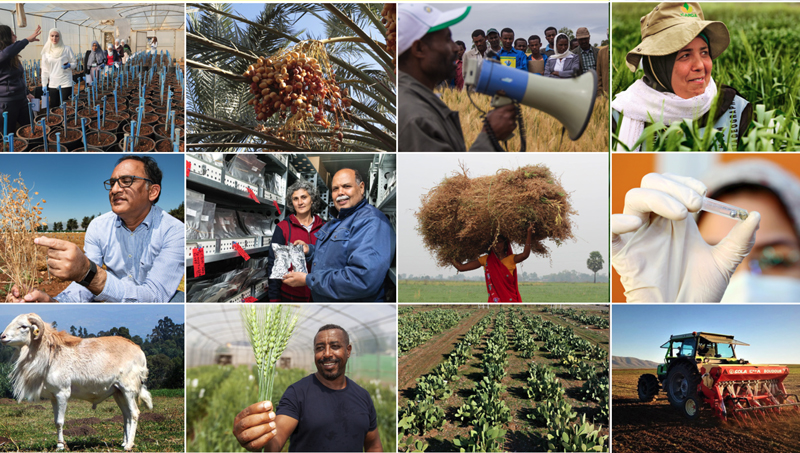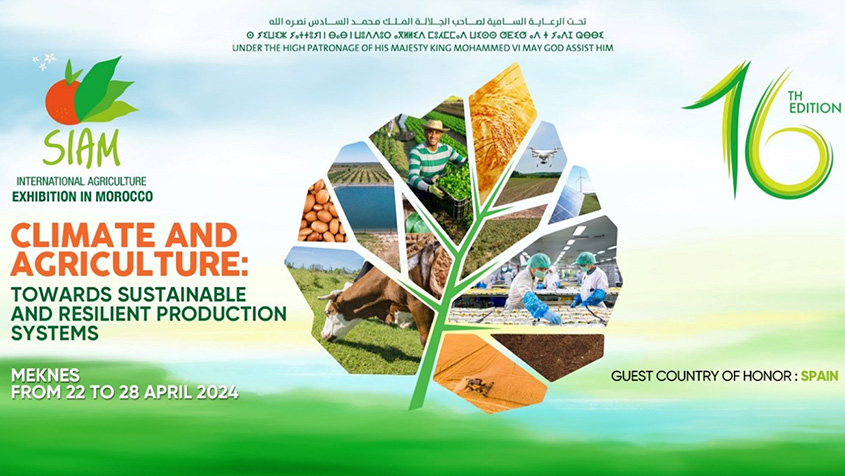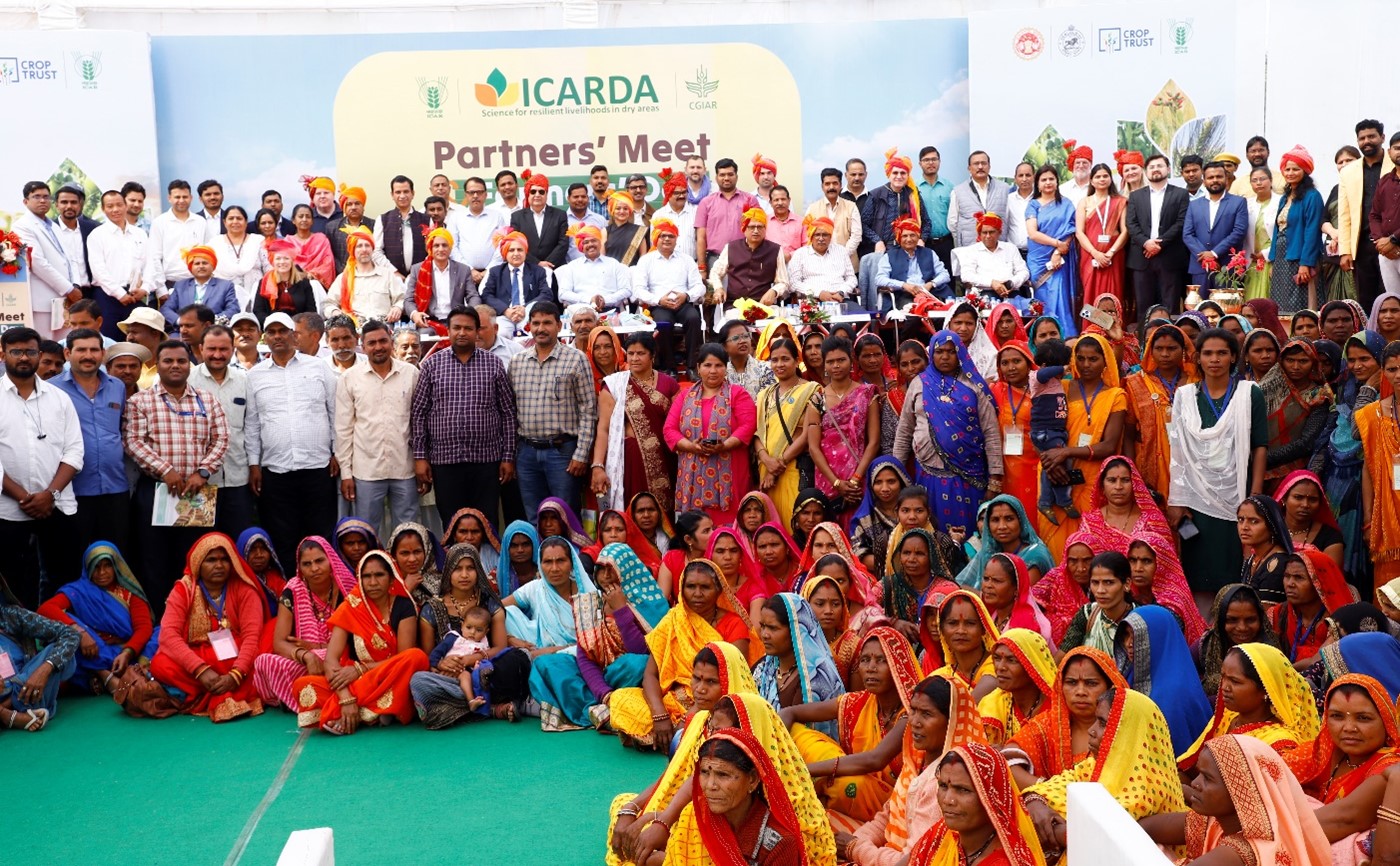Growing Food Against the Odds: The iNASHR Success Story
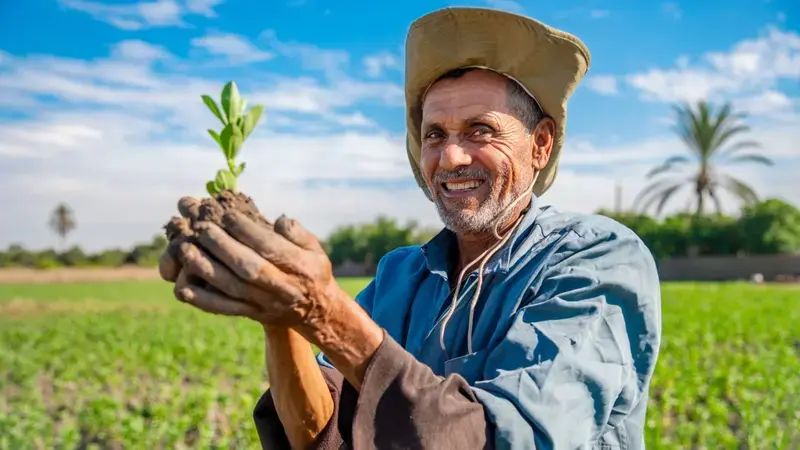
The generous support from the Deutsche Gesellschaft für Internationale Zusammenarbeit (GIZ) and collaboration of Egypt's Agricultural Research Center (ARC) and Access Agriculture made this vital work possible.
ICARDA has recently concluded the four-year Innovative Agriculture for Small-holder Resilience (iNASHR) Project in Egypt with resounding success. iNASHR is now poised to play a crucial role in enhancing Egypt's water resource management while elevating soil quality. Combined, this will make a significant contribution to advancing food and water security for smallholder family farmers.
The Nile River plays a vital role in irrigating Egypt's crops, but facing an annual water deficit of around seven billion cubic meters, Egypt’s water availability is projected to breach the UN's benchmark for 'absolute scarcity' by 2025. Erratic rain patterns, diminishing freshwater supplies, prolonged droughts, high evaporation rates, salinity, and rising temperatures will further contribute to the negative impact on agricultural productivity and income.
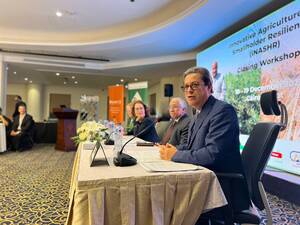
“iNASHR is a dynamic platform for sharing effective farmer-driven experiences and technologies. The project showcases ICARDA’s and CGIAR’s capacity as research institutions and development partners.” – Mr. Aly Abousabaa, Director General, ICARDA, and Regional Director CWANA, CGIAR
The iNASHR project focuses on the sustainable intensification of wheat-based systems in six Egyptian governorates. Several key approaches were successfully deployed, including the facilitation of the adoption of ICARDA-improved wheat and faba bean seed varieties, the reintroduction of cereal/legume crop rotations, the practice of raised bed farming (both mechanized and manual), the implementation of integrated pest management (IPM), and the dissemination of seeds of improved varieties specifically adapted to relevant biotic and abiotic stresses. Additionally, the project emphasized the importance of farmer-based seed multiplication for broader access and availability of high-quality seeds.
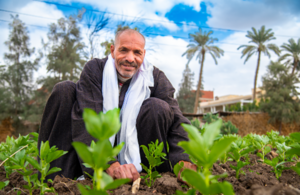
“I embraced new farming methods with incredible results! Implementing raised beds for faba beans and wheat saved seeds, water, and fuel. Faba bean yield increased from 18-20 to 20-25, and wheat from 20-25 to 26-27 ardebs* per acre. Irrigation time was reduced from 3 to 2 hours, and seed multiplication allowed us to exchange stocks with neighboring farmers, so we avoided expensive and unreliable seed purchases.” – Mr. Mohamed Soliman, Farmer, Beni Sueif, Egypt

“Cultivating on raised beds, particularly wheat, conserved our seed and water, reduced the work effort, sped up fertilizer spreading, and increased our crop yields by double or more. Mechanization of our raised bed means the land is used evenly for better crop growth.” – Ms. Asmaa Abd El-Aal, Farmer, Assiut, Egypt
iNASHR is in line with Egypt’s Ministry of Agriculture's objective to increase wheat productivity and reduce the country’s cereal production gap. Currently, Egypt relies on imported wheat to meet over half of its population's needs, with bread being a primary source of daily calories for most Egyptians.
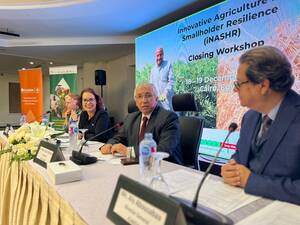
“The project provided farmers with high-quality seeds and raised-bed machines that save water. Even with global crises and environmental challenges, iNASHR has still improved yields and food security for smallholder farmers and their families.” – Dr. Mohamed Soliman, President, ARC
As ICARDA includes farmers in its research right from the start, iNASHR is based on the expressed needs of farmers and is therefore highly valued, making farmers willing to adopt the technology. Furthermore, ICARDA collaborated closely with Access Agriculture, which specializes in producing farmer-to-farmer videos. This collaboration proved instrumental in reaching a wider audience of farmers and effectively disseminating knowledge in a convenient and accessible way, especially for women.
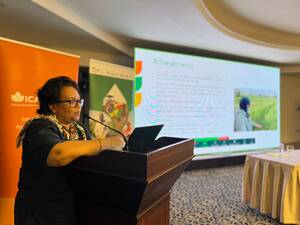
“Thanks to field demonstrations, farmer-field-schools, farmer-to-farmer-videos, field days, and further training, we directly reached over 80,000 smallholder farmers in Egypt whom we assume spoke to at least four other farmers. So, we can conservatively estimate that iNASHR reached about 320,000 farmers in total. I am more than happy about the great success of this project.” – Dr. Bezaiet Dessalegn, Social Sciences Specialist and iNASHR Project Coordinator, ICARDA
“The investment for ICARDA’s research has proven worthwhile,” said Ms. Dagmar Wittine, Advisor at GIZ/Fund International Agricultural Research (FIA). “This success is primarily attributed to the strong partnership between ICARDA as the lead organization and their collaboration with ARC, farmers, and Access Agriculture for co-implementation,” she added.
The farmer-to-farmer videos created by Access Agriculture enabled us to connect with farmers in their preferred learning environments, maximizing the project's impact and ensuring that valuable agricultural practices reached as many farmers as possible.
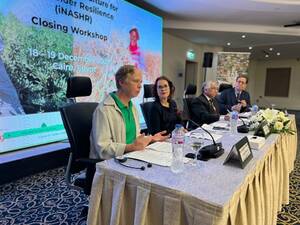
“We’re pleased that farmers are applying what they’ve learned through our videos and that female farmers have become service providers for their communities. This knowledge will be passed down to the next generation.” - Josephine Rogers, Executive Director, Access Agriculture
Previously on iNASHR:

